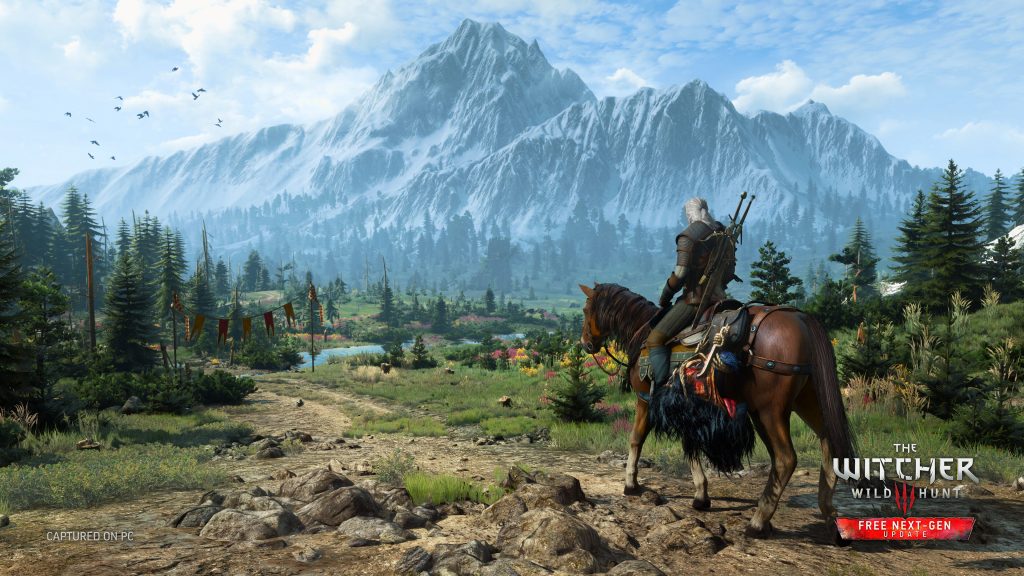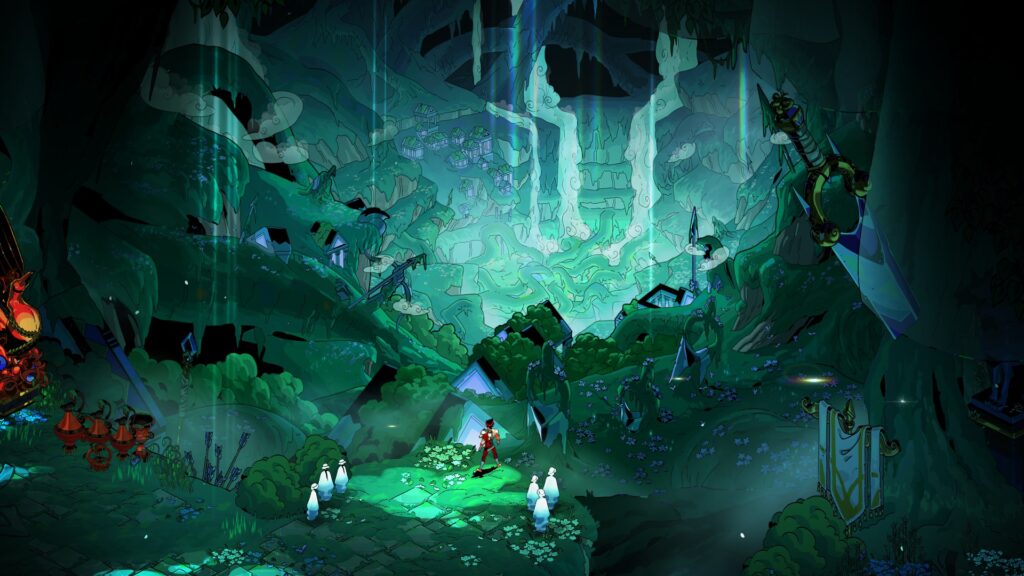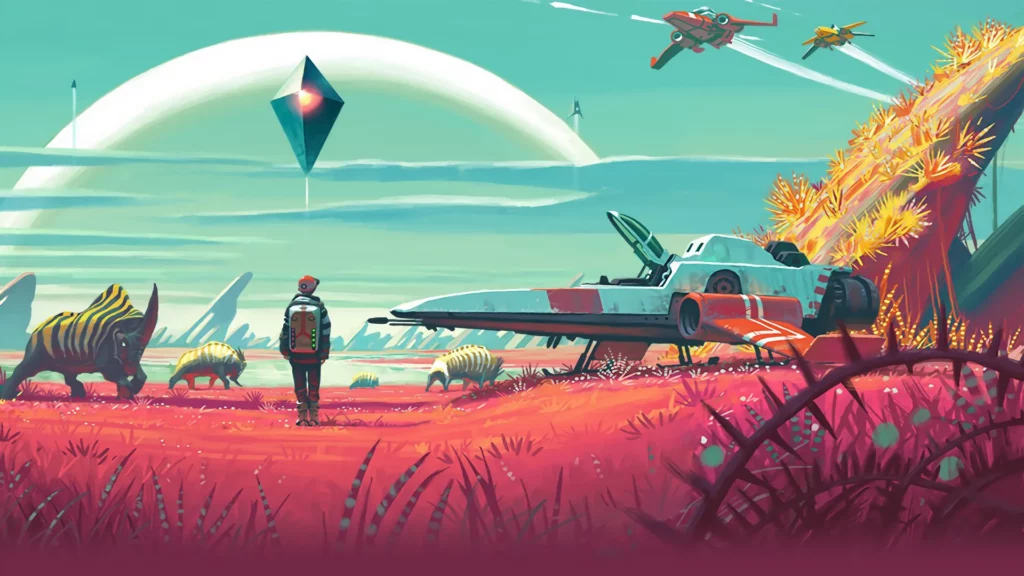The question of what makes a good game is both complex and subjective, as it encompasses various elements that come together to create an engaging and enjoyable experience. These elements range from graphics and story to mechanics, exploration, and sound. In this article, we will evaluate each of these aspects, discussing what works well in popular titles and what sometimes falls short.
Graphics: Visual appeal and artistic style
What works well
High-quality graphics can significantly enhance a game’s immersive experience. Titles like The Witcher 3: Wild Hunt and Red Dead Redemption 2 are often praised for their stunning visuals, which bring their vast worlds to life. These games utilise advanced graphics engines to create detailed environments, realistic lighting, and lifelike character animations.
Artistic style also plays a crucial role. For example, Cuphead’s 1930s cartoon-inspired graphics stand out due to their unique and cohesive artistic direction. Similarly, the minimalist and vibrant aesthetic of Journey contributes to its serene and meditative atmosphere, making it memorable despite its simplicity.
What doesn’t work
Overemphasis on graphical fidelity at the expense of performance can detract from the gaming experience. Titles like Cyberpunk 2077 faced criticism due to performance issues, especially on older consoles, despite their impressive visuals. A balance between graphical quality and smooth performance is essential.

Story: Narrative depth and emotional engagement
What works well
A compelling story can elevate a game from good to great. Games like The Last of Us and Mass Effect series are lauded for their deep, emotionally engaging narratives. These titles feature well-developed characters, intricate plotlines, and choices that impact the story, providing players with a sense of agency and connection.
Narrative-driven games like Disco Elysium excel by offering rich lore and complex dialogue, allowing players to immerse themselves in the game world and its stories. The ability to influence the narrative through player choices adds to the engagement and replayability.
What doesn’t work
Linear, predictable plots and poorly written dialogue can hinder a game’s impact. Those that fail to create believable characters or offer meaningful choices often struggle to keep players invested. Additionally, overly complex or convoluted stories can confuse players, detracting from the overall experience.

Mechanics: Intuitive controls and engaging gameplay
What works well
Intuitive controls and well-designed mechanics are fundamental to a good game. Hades is a prime example, with its fluid combat system and easy-to-learn, hard-to-master mechanics. Its responsive controls and balanced difficulty curve keep players engaged and motivated to improve.
Variety in gameplay mechanics also contributes to a game’s success. The Legend of Zelda: Breath of the Wild allows players to approach challenges in multiple ways, encouraging creativity and exploration. The game’s physics-based interactions and open-world design provide a sense of freedom rarely seen in other titles.
What doesn’t work
Complex, unintuitive controls and poorly implemented mechanics can frustrate players. Games that lack clear tutorials or have steep learning curves may alienate new players. Additionally, repetitive gameplay can lead to boredom, as seen in some open-world games where fetch quests and monotonous tasks dominate the experience.

Exploration: World design and player freedom
What works well
A well-designed virtual world invites exploration and rewards curiosity. Skyrim and The Witcher 3 offer vast, detailed environments filled with secrets, quests, and lore. These games encourage players to wander off the beaten path and discover hidden stories and treasures, enhancing the sense of immersion.
Games that provide meaningful exploration often include diverse landscapes and dynamic environments. No Man’s Sky, despite its rocky launch, has evolved into a title that offers endless exploration opportunities across procedurally generated planets, each with unique ecosystems and resources.
What doesn’t work
Empty, lifeless worlds can detract from the sense of adventure. Games that fail to populate their environments with engaging content or meaningful interactions may feel barren and uninviting. Additionally, excessive reliance on waypoints and markers can discourage organic exploration, making the world feel more like a checklist than a living, breathing entity.

Sound: Music and audio design
What works well
Sound design plays a critical role in creating an immersive atmosphere. The Last of Us and Hellblade: Senua’s Sacrifice are celebrated for their exceptional audio work. The use of environmental sounds, voice acting, and music enhances the emotional impact and realism of these games.
A memorable soundtrack can also elevate your experience. The music in the Final Fantasy series and The Elder Scrolls V: Skyrim is iconic, contributing significantly to the overall experience. Well-composed music can evoke emotions, set the tone, and remain with players long after they have finished playing.
What doesn’t work
Poor audio quality or mismatched music can break immersion. Inconsistent sound effects or subpar voice acting can distract players and diminish the overall experience. Additionally, repetitive or uninspired soundtracks may fail to engage players or complement the game’s atmosphere.
Conclusion
A good game is a harmonious blend of various elements, each contributing to the overall experience. High-quality graphics and artistic style draw players in, while compelling stories and engaging mechanics keep them invested. Thoughtfully designed worlds invite exploration, and excellent sound design enhances immersion. Balancing these aspects is key to creating a title that not only entertains but also resonates with players on a deeper level.
As the gaming industry continues to evolve, developers who focus on these core elements while innovating and pushing boundaries will likely create the next generation of beloved games.
Want to check out more of our writers’ opinions? Then head on over to our opinion pieces section where you’ll find a whole host of content from list articles to general observations on popular titles.